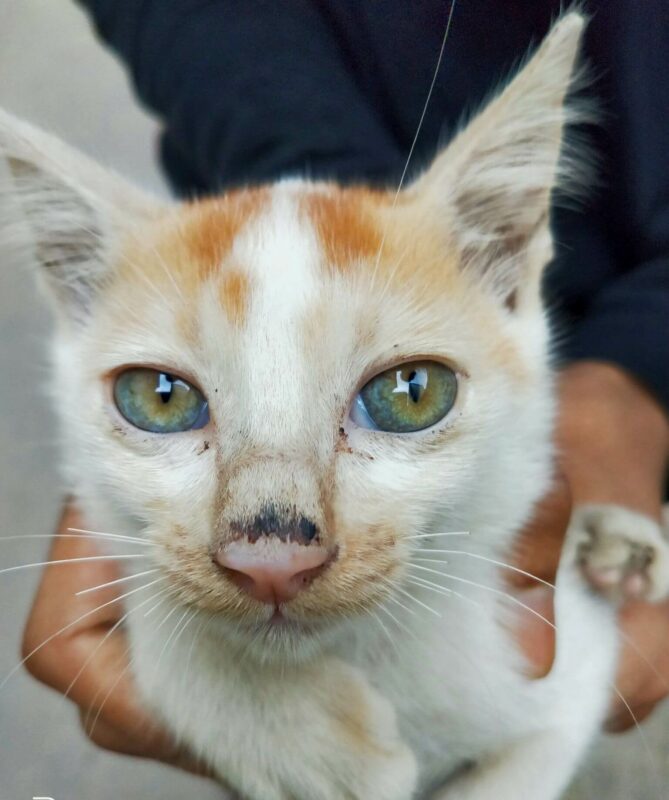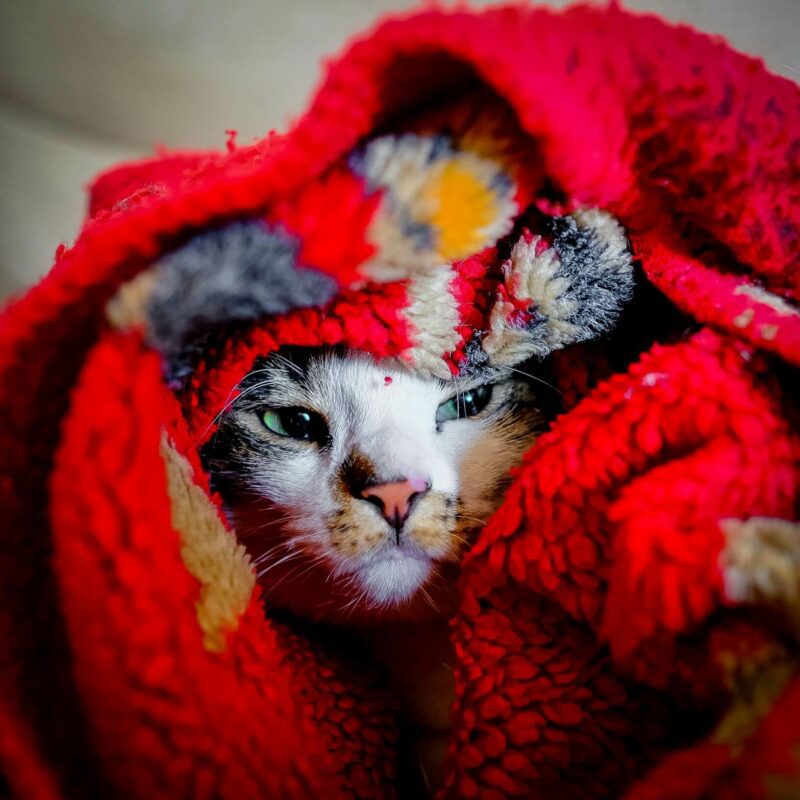Feline respiratory disease complex (FRDC), also known as cat snuffels, cat flu or feline upper respiratory infection (URI), includes illnesses typified by runny noses, sneezing, teary eyes, inflamed eyes, salivation, and oral ulcerations. Your cat will look like they are suffering from a cold or flu if they have this infection. It is highly contagious.
It may be caused by various viruses and sometimes even bacteria. The most common culprits are Felineherpes virus-1 (FHV-1) and Feline calicivirus (FCV).
Upper respiratory infections can occur in any cat but are most common in kittens or under-vaccinated adults who have had contact with other cats.
Cat Flu Signs and Symptoms:
- Sneezing
- Eye discharge
- Runny nose
- Coughing
- Lack of energy
- Anorexia
- Fever
- Dehydration
- Raised third eyelid

Treatment of Cat Snuffels:
The most important factor in the treatment of cat flu or snuffels is supportive care.
- Never give medication to your cat that is NOT prescribed by a veterinarian.
- Remove nasal and eye secretions as they build up.
- Keep your cat in a dry, warm, humidified and stress-free environment.
- Encourage your cat to eat. Give them warm canned cat food, strong smelling fish eg tuna (plain and in small amounts).
- The amino acid Lysine is beneficial for cats with snuffels. Get a veterinary-approved cat food product that contains this.
- Feed your cat a balanced and nutritious diet that supports their immune system. Our Optimal Balance cat food is made to supply your cat with all the vitamins and minerals that aid healthy immune function.
- If your cat is severely congested, leave him in a steamy bathroom for an hour a day.
- If your cat is not interested in food, severely lethargic or his symptoms becomes worse take him to the vet immediately.

Feline Respiratory Disease Prevention:
There are various viruses that can cause cat snuffels.
Fortunately your cat can be vaccinated against the two most common viruses: Felineherpes and Feline calicicvirus.
Follow your vet’s recommendations closely. The virus is highly infectious. So, try to minimise its spread.
- Keep your infected cat away from any other cat in the household.
- Keep their food and water bowls separate and clean (cat flu can spread through contaminated objects).
- Wash your hands after handling the infected cat.
- Disinfect any surfaces or spaces they have been near.
If you adopt or buy a kitten, ensure that he/she has received all their vaccinations.
Read about Feline respiratory disease complex in more detail.
FAQs:
Q: Can humans catch cat flu?
A: No, humans and dogs cannot catch it. Likewise, humans cannot pass on colds or flu to their cats. Snuffles is contagious from feline to feline.
Q: How long does cat flu last?
A: It usually lasts around a week.
Q: Is there a cure for cat snuffles?
A: No, there is no cure. It is best to manage symptoms and focus on speeding up recovery.
Q: Which cats are at risk?
A: Kittens, unvaccinated cats, and senior cats with weakened immune systems. These cats need extra care and attention if they become infected as they can experience the ‘flu’ more severly.